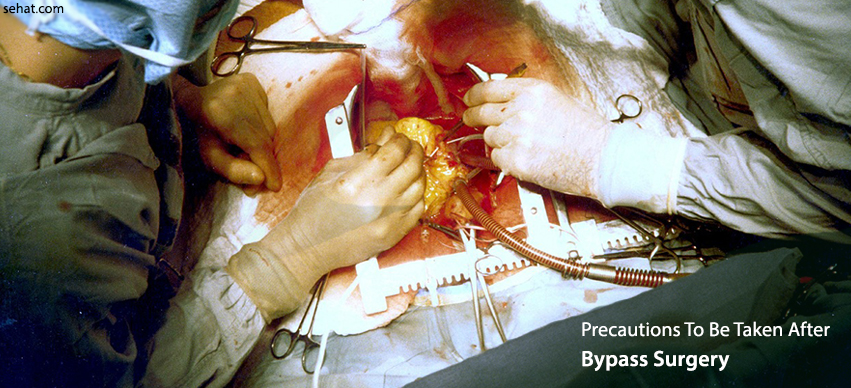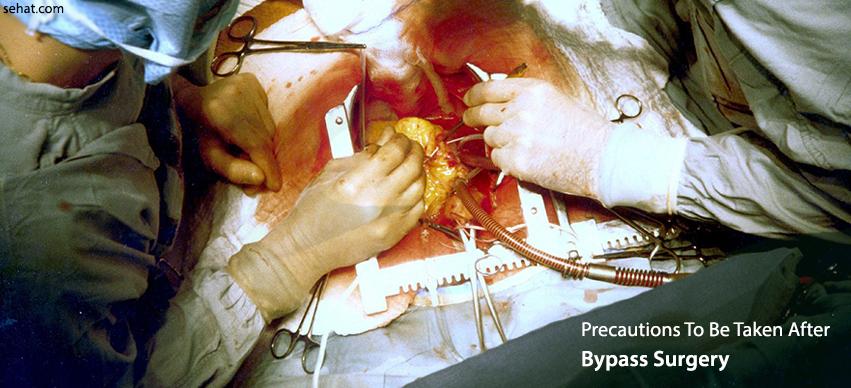How Communities Are Changing the Way We Think About Aging in..
8 Min Read


Bypass surgery is regarded as major surgery. Various precautions should be followed during the recovery period which ranges from about 3 months to 4 months depending upon the activity to be performed. Precautions should be taken in choosing an appropriate diet, exercise, lifestyle, routine activities and wound care.
Bypass Surgery is the surgery needed to treat coronary artery disease. In the coronary artery disease, the coronary vessels get blocked due to deposition of plaque. A new route for reaching blood and oxygen to the heart is made. As this new route bypasses the blocked area, the surgery is known as bypass surgery.
Bypass surgery is categorized as major surgery, thus proper care should be taken after the surgery. Implementing precautionary measures helps in the speedy recovery and prevent surgical complications. During the recovery period, the patient has to follow the advice of the surgeon and the paramedical staff related to routine activities, exercise, diet, medications, wound care and follow-up visit.
The recovery period in the patients undergoing bypass surgery is approximately two to three months.
A healthy diet is closely associated with accelerated healing, reduced complications, and full recovery. After bypass surgery diet should be maintained in such a way that it provides essential nutrients to the body for recovery and simultaneously reduces the risk of further cardiac complications. foods to avoid after coronary bypass surgery are fatty foods, especially containing saturated fat, and sugary food. The patient should be on a diet full of fruits, vegetables, and fibrous food. Fibers in the diet avoid constipation and also reduces the risk of cardiac complications. High fiber cereals should be part of breakfast. The starchy food should also be added to the diet in sufficient quantity as this will help in generating sufficient energy. Limit the amount of salt intake.
Exposure of internal tissues with the environment increases the risk of infection. Bypass surgery wound requires a great deal of care although the majority of wound heals without any problems. People who are diabetic and are on immunosuppressant are at increased risk of developing an infection. The wound should be kept clean and dry. Do not apply any oil or ointments on the incision without consulting your surgeon. Further, if you feel pain, fever, swelling or drainage from the wound, immediately book an appointment with your doctor.
To prevent the stiffness of muscles of neck and shoulder, general exercise can be done. The exercise should be done gently and for a few minutes daily. Various aerobic exercises can be performed to increase the functional capacity of the heart. It should be noted that such exercise should be started after 6-8 weeks of surgery and the intensity and duration should be gradually increased.
Sternum or breast bone is cut to get access to the heart. After the surgery, both parts reconnected with stainless steel wires. The healing of sternum takes about three to four months. Extra care should be taken to avoid any stress on the healing sternum. This includes avoiding activities that require your arm to push or pull such as washing, gardening or sudden rising from chair or bed.
Precautions should be taken while performing routine activities. Keep the routine activities as simple as possible for the first few weeks. While driving can be started within 1-2 months, sexual activity can be started after 3 months. Most people may return to their office works after 2-3 months. Refrain from engaging in heavy work within 1-2 weeks after surgery.
After the surgery, lifestyle changes are essential to maintain a healthy heart. Take proper sleep and rest and also avoid junk foods that increase cholesterol as well as causes constipation. Sleep positions after open heart surgery should be taken care of. The sleeping position should be comfortable and does not interfere with the healing process of the breastbone. Sleeping with the back and on the right side are the best position to sleep after bypass surgery. Give-up smoking and strictly control the intake of alcohol. If you are overweight or obese, try to reduce weight through a holistic approach.
Medications are the key to full recovery and reducing cardiovascular complications in the long run. Take the medications as prescribed by the doctor. The medications include antibiotics to reduce the risk of infections and other drugs that improves your heart health. If you have any side effects due to medications, consult your doctor. Never stop any medication on your own.
Extra precautions should be undertaken by diabetic patients as they are more prone to infection. Thus, these patients should have minimum interaction with other people during the first few weeks of recovery. Also, such patients should avoid attending public functions and crowded places for 3 months post-surgery.
The patent must take overall care of his health and control risk factors that increase the incidences of other cardiac disorders. The patient should control weight gain, cholesterol, hypertension, stress, physical inactivity, smoking, depression, and social isolation.
The patient should refrain from taking the stress and should manage emotional health. This would be possible with the help of family and friends. Increased stress may lead to complications and delayed recovery.